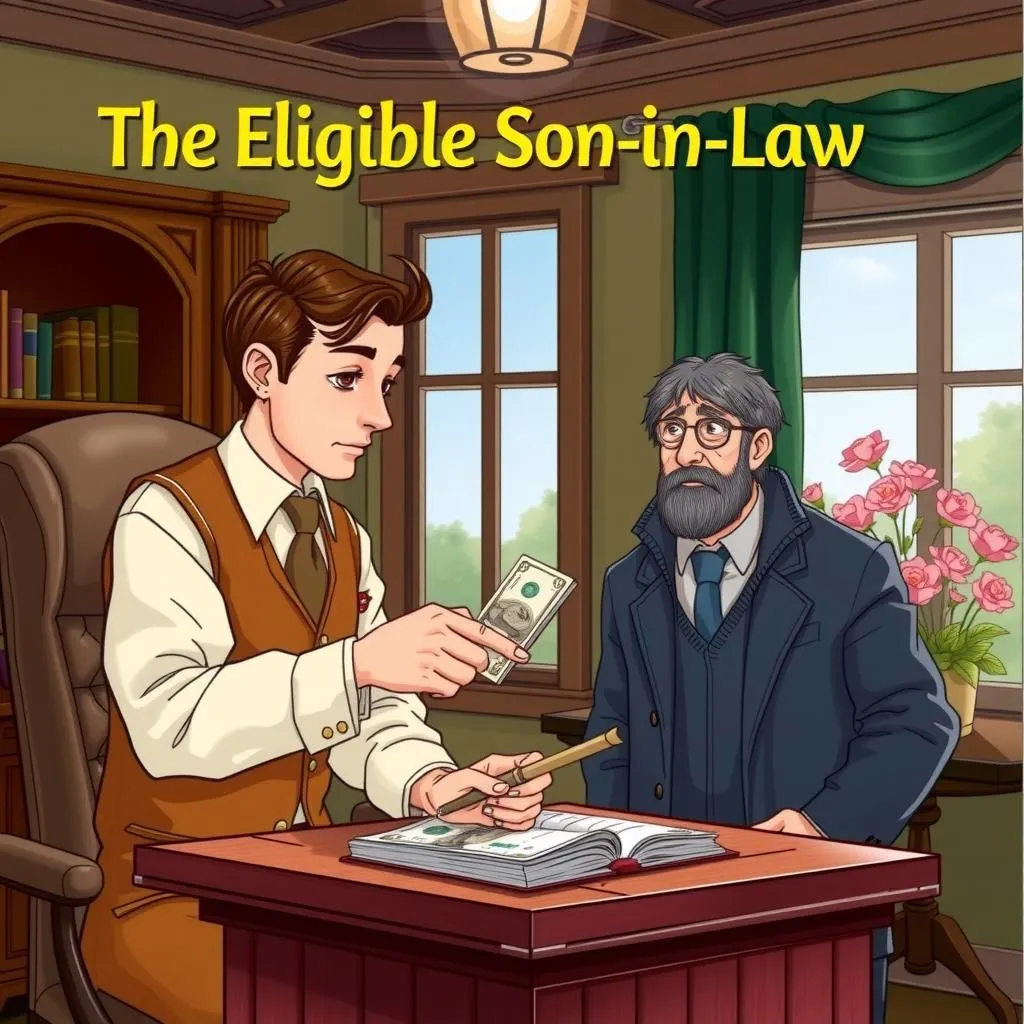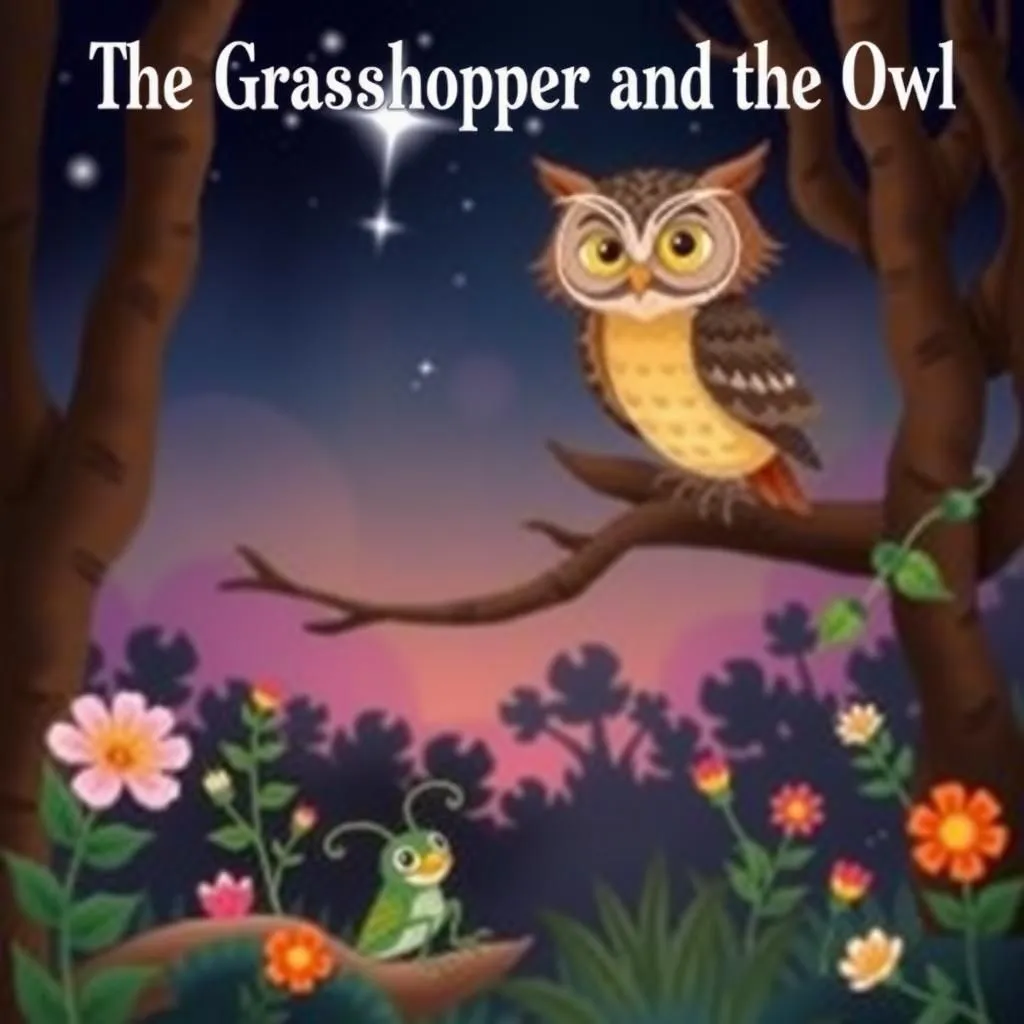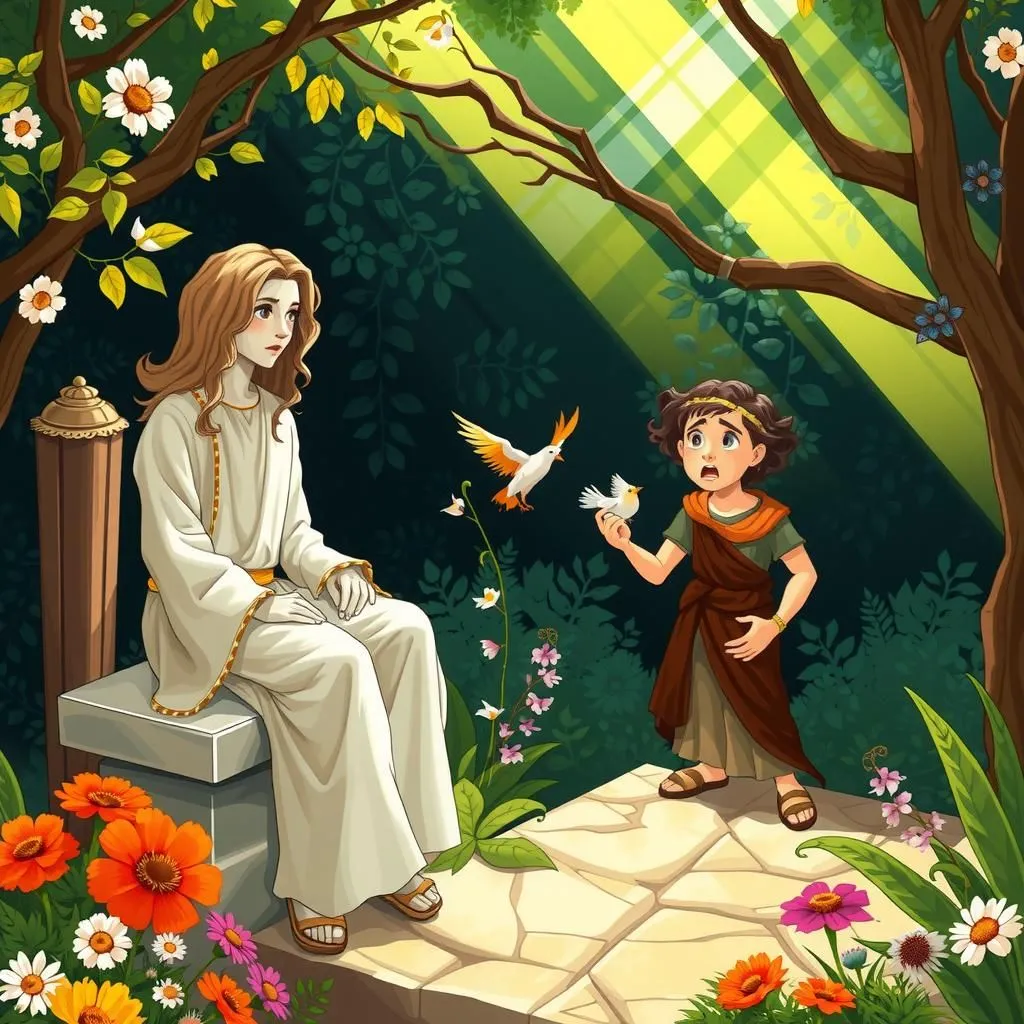
The Eligible Son-in-Law
In "The Eligible Son-in-Law," a pious banker is approached by a shabby man seeking a loan of one hundred thousand dollars, claiming he will soon marry the banker's daughter, presenting this as the best security. The banker, unable to see the flaw in this scheme of mutual benefit, agrees to the loan, illustrating the themes often found in short moral tales that emphasize the importance of discernment and the potential pitfalls of blind trust. This folklore-like story serves as a motivational tale for personal growth, reminding readers to critically assess promises that seem too good to be true.


